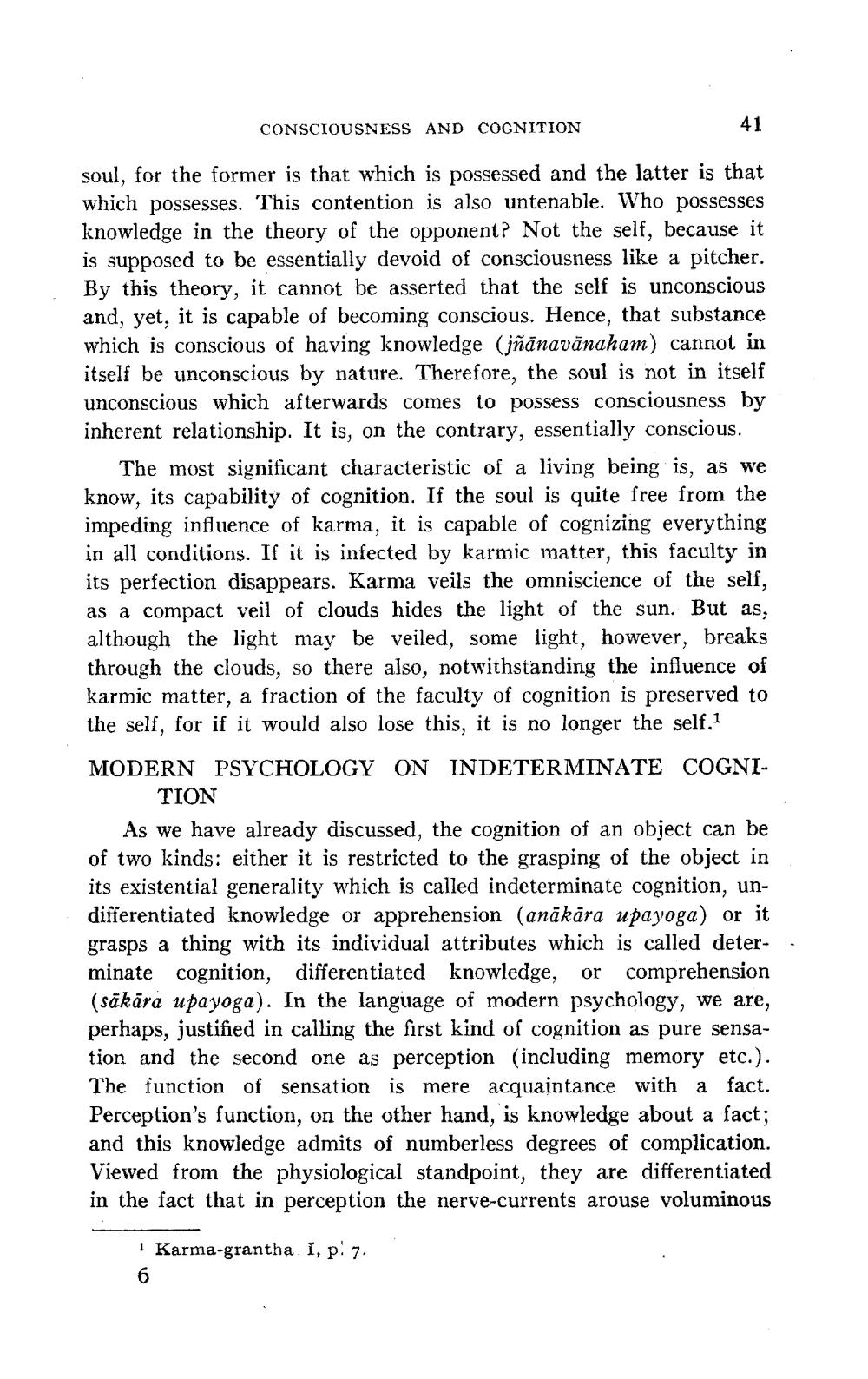________________
CONSCIOUSNESS AND COGNITION
41
soul, for the former is that which is possessed and the latter is that which possesses. This contention is also untenable. Who possesses knowledge in the theory of the opponent? Not the self, because it is supposed to be essentially devoid of consciousness like a pitcher. By this theory, it cannot be asserted that the self is unconscious and, yet, it is capable of becoming conscious. Hence, that substance which is conscious of having knowledge (jñānavānaham) cannot in itself be unconscious by nature. Therefore, the soul is not in itself unconscious which afterwards comes to possess consciousness by inherent relationship. It is, on the contrary, essentially conscious.
The most significant characteristic of a living being is, as we know, its capability of cognition. If the soul is quite free from the impeding influence of karma, it is capable of cognizing everything in all conditions. If it is infected by karmic matter, this faculty in its perfection disappears. Karma veils the omniscience of the self, as a compact veil of clouds hides the light of the sun. But as, although the light may be veiled, some light, however, breaks through the clouds, so there also, notwithstanding the influence of karmic matter, a fraction of the faculty of cognition is preserved to the self, for if it would also lose this, it is no longer the self.1 MODERN PSYCHOLOGY ON INDETERMINATE COGNI
TION As we have already discussed, the cognition of an object can be of two kinds: either it is restricted to the grasping of the object in its existential generality which is called indeterminate cognition, undifferentiated knowledge or apprehension (anākāra upayoga) or it grasps a thing with its individual attributes which is called deter- . minate cognition, differentiated knowledge, or comprehension (sākāra upayoga). In the language of modern psychology, we are, perhaps, justified in calling the first kind of cognition as pure sensation and the second one as perception (including memory etc.). The function of sensation is mere acquaintance with a fact. Perception's function, on the other hand, is knowledge about a fact; and this knowledge admits of numberless degrees of complication. Viewed from the physiological standpoint, they are differentiated in the fact that in perception the nerve-currents arouse voluminous
1 Karma-grantha. I, p. 7.




